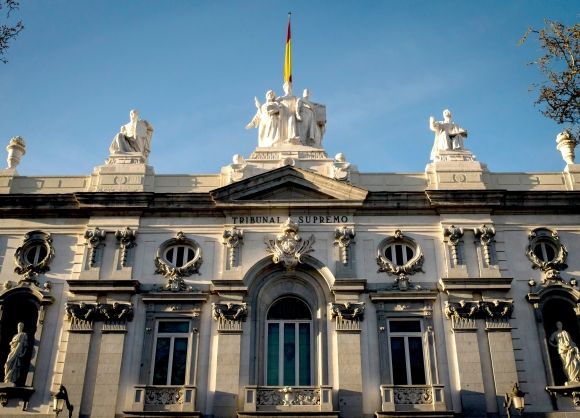Shortly after his arrival on the Italian island of Sardinia this autumn, where he had been due to attend a folk festival, Carles Puigdemont was met by police and promptly arrested. Italian authorities had detained the exiled former Catalan president (and current MEP for Spain) because of an arrest warrant issued by Spain’s Supreme Court. A huge argument soon erupted as to whether member states like Spain should be trying to arrest people on political grounds, and indeed whether European partners like Italy should help them. The event also sparked a more technical debate about whether Madrid has chosen to break EU law by doing so.
Puigdemont was arrested for his involvement in Catalonia’s controversial 2017 independence referendum, which was deemed unconstitutional by the Spanish courts—and was ultimately unsuccessful in creating an internationally recognised sovereign state. As president of Catalonia at the time of the vote, he faced charges of sedition and pointedly fled Spain to Belgium as a statement against what supporters of Catalan independence consider Spain’s undemocratic judiciary and executive. The charges were never dropped, but his arrest in Sardinia nonetheless came as a surprise to the EU General Court, which had been advised by Spain that the warrant was no longer active.
The day after his arrest, magistrates in the nearest Court of Appeals at Sassari freed Puigdemont and suspended his extradition case, arguing there was confusion over his immunity privileges as a sitting MEP. He is now waiting for the EU General Court to make a final ruling on his status, which Puigdemont’s lawyer expects to happen in “six to seven months.”
Now back in Brussels, Puigdemont told me: “Spain never recognised my immunity or my election as MEP in the first place.” He adds that “the actions Brussels brings against Poland for refusing to apply the mandates of European justice should be applied to all member states. The real question is: if the EU General Court recognises our immunity as MEPs, will Spain accept the ruling or follow Poland into questioning the primacy of EU law?”
Immunity for MEPs is, according to the European parliament’s website, a guarantee that a member “cannot be exposed to arbitrary political persecution.” In July, Puigdemont had been stripped of his immunity in a provisional decision following a vote in the European parliament. After an appeal, the EU court said it wasn’t necessary to reinstate his immunity before its final ruling because, with no active warrants out for his arrest, there was no foreseeable danger of him facing political persecution. When he was arrested in Italy on the basis of an active but unknown warrant, his allies claimed Madrid was not respecting EU law.

Aleix Sarri i Camargo, the international officer for Together for Catalonia, Puigdemont’s current party, told me that the situation represents an “undermining of EU institutions,” and points to the way that Spain’s contempt for EU law creates a precedent for troublesome authoritarian states to do the same thing. “It’s not enough to criticise Poland, it’s not enough to criticise Hungary,” he says. “If you don’t dare to confront how Spain is undermining Europe, you’re creating double standards that will create a backlash.”
On 7th October, Poland’s Constitutional Court ruled that Articles 1 and 16 of the European treaties were unconstitutional, in part of an ongoing conflict between the country’s own national laws and those of the EU. Differences between Warsaw and Brussels have centred around Poland’s disciplining of judges, which the EU considers a threat to the independence of the judiciary.
In defending its rejection of Brussels’s judiciary reform orders, Poland cited the imprisonment of Oriol Junqueras, Catalonia’s vice president during the referendum who is now also an MEP. In 2019, the Spanish Supreme Court sentenced Junqueras and eight other Catalan leaders to between nine and 13 years in prison for sedition—the same charge hanging over Puigdemont. Spain did not request that the European courts strip Junqueras of his political immunity before his sentencing. Two months later, the EU’s Court of Justice ruled that Junqueras still had immunity and should not have been jailed. But having already prioritised its national laws, Spain initially ignored the ruling—with the Catalan prisoners only released two years later following a pardon by the prime minister.
Beyond the clash of supremacy between EU and Spanish national laws, Spain’s law of sedition is in itself controversial. The charge implies the use of violence, which Puigdemont’s defence claims neither he nor his allies ever committed. In fact, Amnesty International has condemned Spain’s national police for brutality against Catalan civilians during the referendum. Sedition is also—as the Spanish justice minister himself last year referred to as a “19th-century law”—an anomaly in modern western Europe. It does not exist in France, Germany, Belgium or Italy.
With Puigdemont’s arrest, it no longer looks like a harmless anachronism. Spain’s hunt for political prisoners, and its defiance of the rules of the European parliament, looks increasingly like a threat to the EU’s respect for the rule of law—which is what ultimately underpins the integrity of the bloc as a whole.












